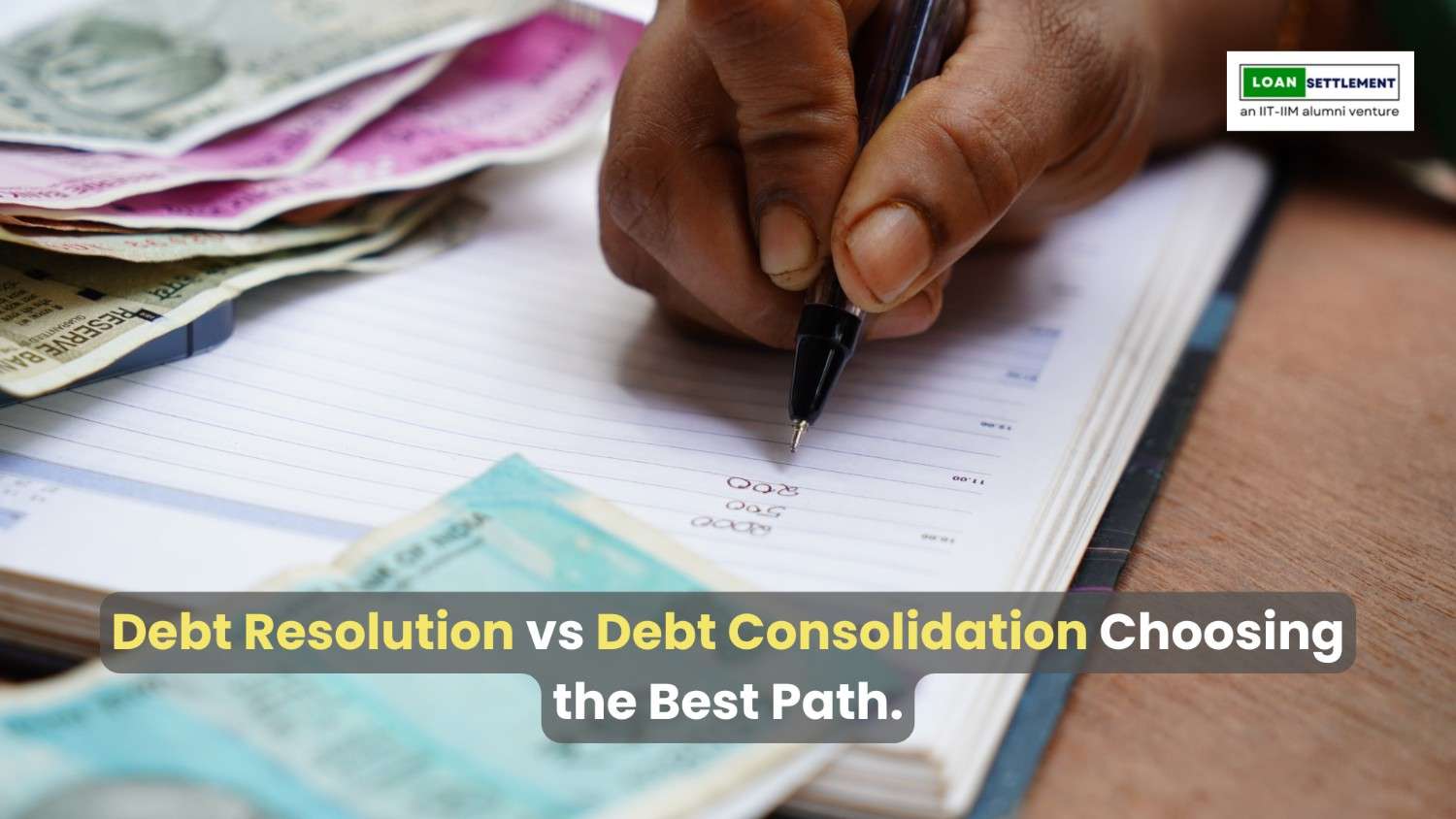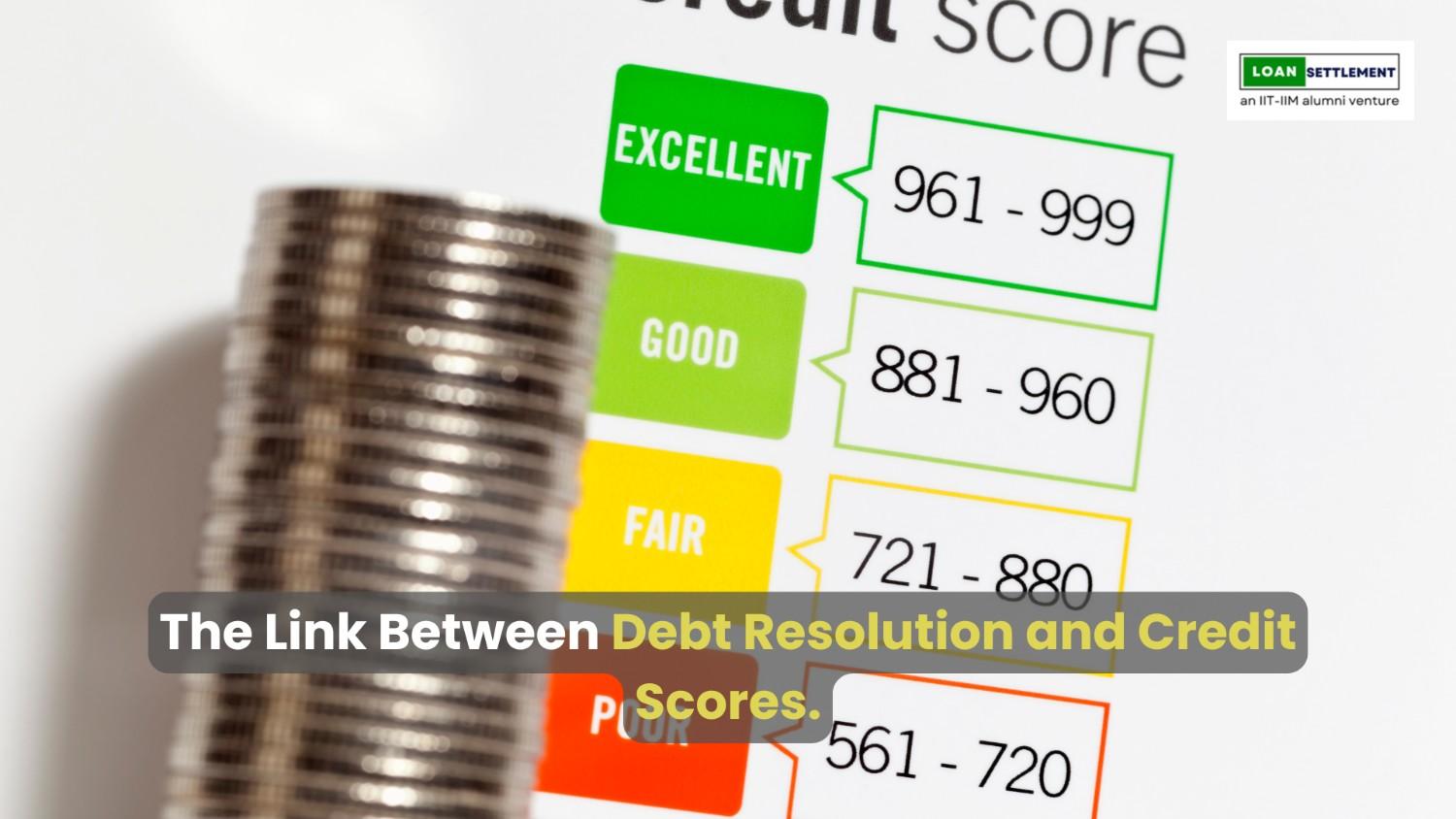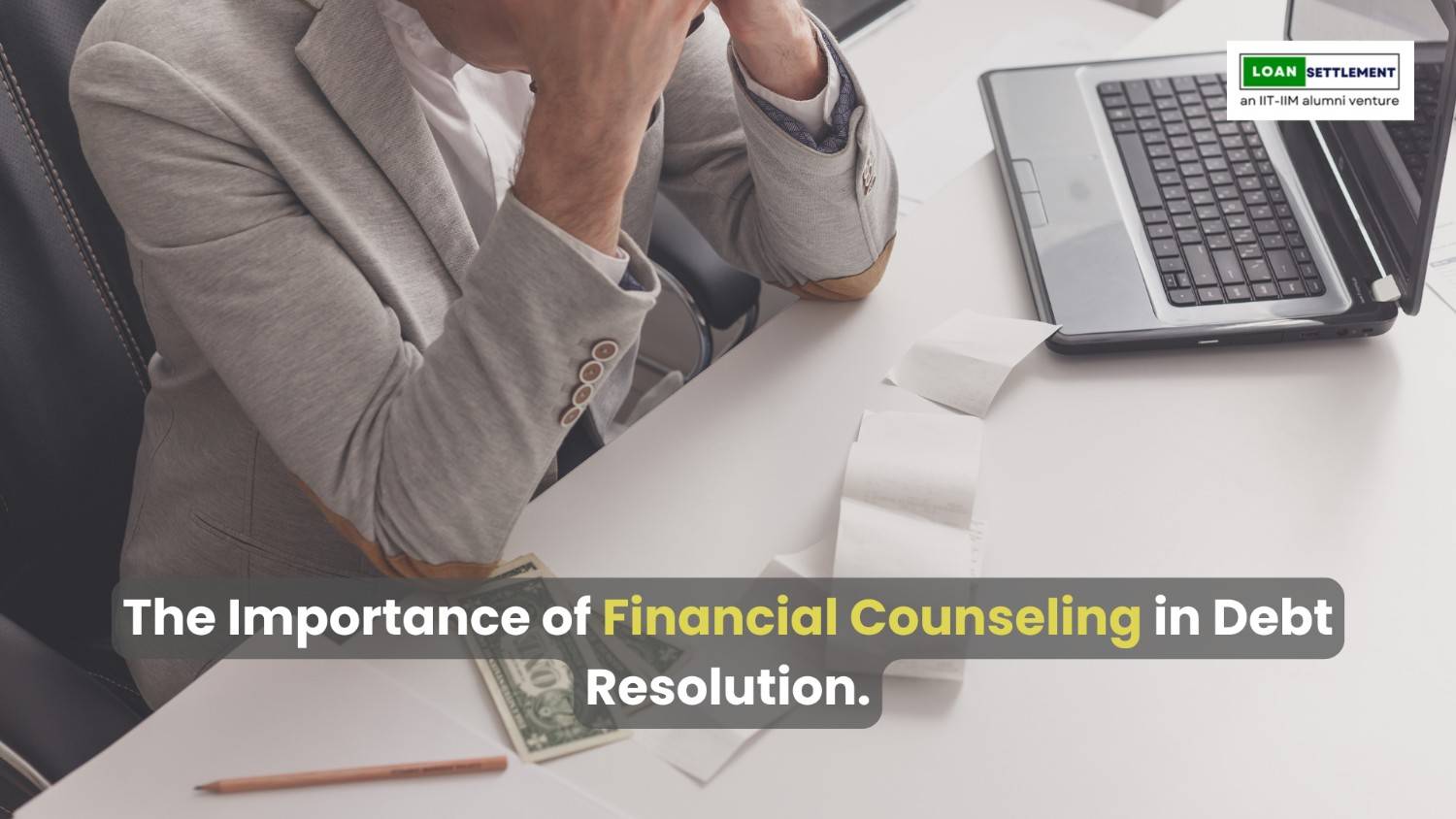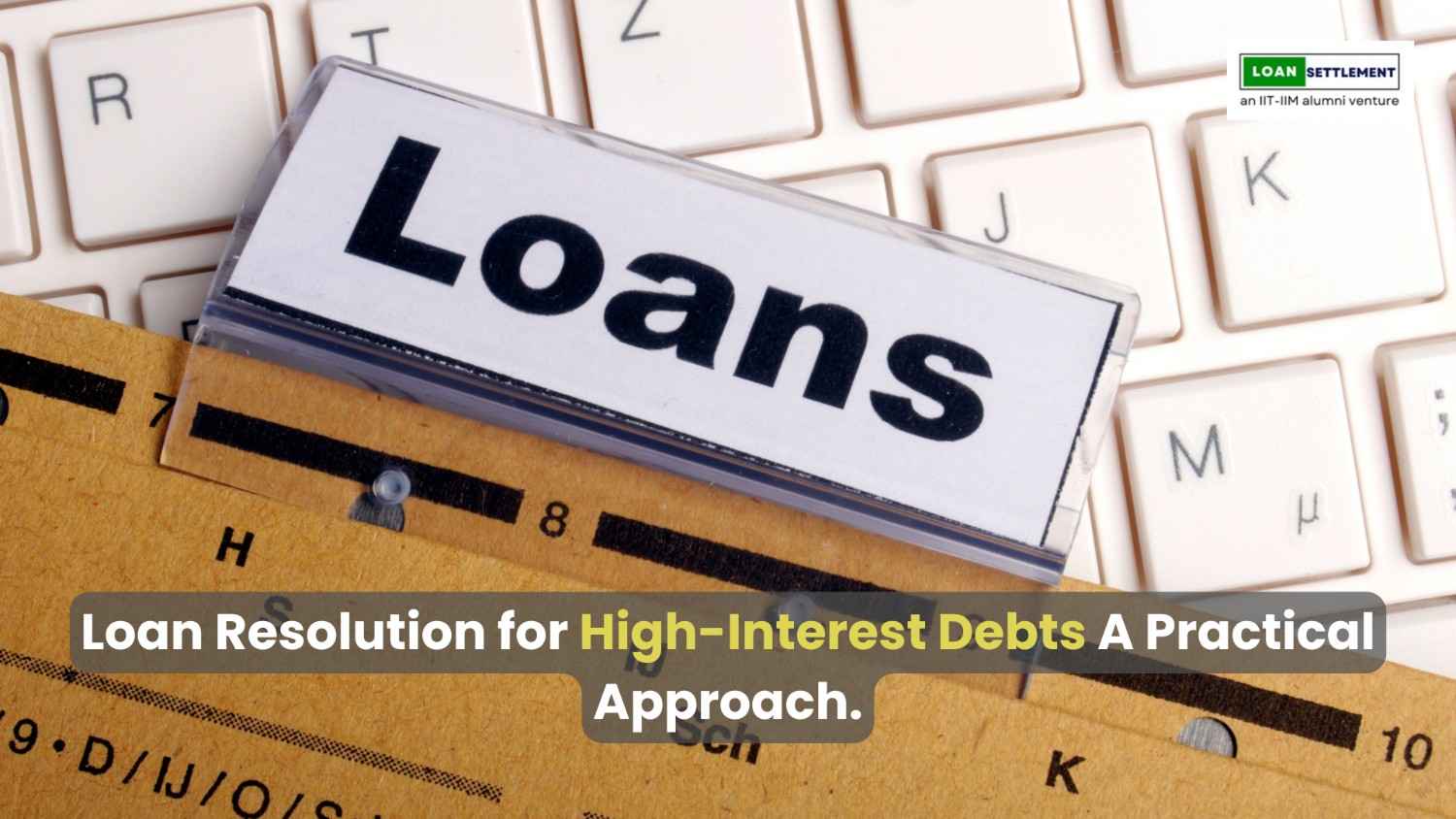· Debt Resolution · 6 min read
Debt Resolution vs. Debt Consolidation: Choosing the Best Path
Struggling with debt? Learn the key differences, pros, and cons of debt resolution and debt consolidation. Discover which strategy is best suited to your financial situation and long-term goals.

Dealing with debt can feel like you’re stuck in quicksand—no matter how hard you try, it’s tough to get out. Whether it’s credit card debt, medical bills, or student loans, finding a solution is critical. But with all the options out there, how do you decide which path is best for you? Two of the most common strategies people turn to are debt resolution and debt consolidation. But which one makes the most sense for your situation?
In this article, we’ll dive into the differences, pros, and cons of both approaches so you can make an informed decision. Ready to find the best path out of debt? Let’s go.
What is Debt Resolution?
Debt resolution, also known as debt settlement, is a process where you or a professional negotiates with your creditors to reduce the total amount you owe. Essentially, you’re asking your creditors to accept a lower payment as a settlement in full.
For example, if you owe $10,000, you might negotiate a settlement where you pay just $6,000, and the creditor forgives the rest. Debt resolution typically involves working with a third-party company that handles the negotiations on your behalf.
How Debt Resolution Works
You stop making payments to creditors.
The debt resolution company negotiates a reduced payoff.
Once an agreement is reached, you make the settlement payment, and the debt is resolved.
What is Debt Consolidation?
Debt consolidation is a different approach. Instead of negotiating to reduce the amount owed, you combine multiple debts into one loan or payment. This often results in a lower interest rate and a single monthly payment, which can make it easier to manage your finances.
There are several ways to consolidate debt, including:
Personal loans: You take out a loan and use it to pay off your existing debts.
Balance transfer credit cards: Transfer all your credit card balances to one card with a low interest rate.
Home equity loans: Use the equity in your home to secure a loan and pay off your debts.
Key Differences Between Debt Resolution and Debt Consolidation
Understanding the differences between these two options is essential to choosing the right path.
Approach: Debt resolution reduces the amount you owe, while debt consolidation combines your debts into one for easier management.
Impact on Credit: Debt resolution can harm your credit score in the short term, while debt consolidation can actually improve it if managed responsibly.
Timeframe: Debt resolution typically offers faster relief, while debt consolidation may take longer but offers a steadier approach.
Pros of Debt Resolution
Reduction of debt owed: You can pay less than what you actually owe.
Faster resolution: It can take just a few months to a few years to settle your debts.
Potential for financial freedom: This method can provide a quick way out for those drowning in debt.
Cons of Debt Resolution
Credit score damage: Since you’re not making payments during negotiations, your credit score can take a hit.
Fees and risks: Debt resolution companies often charge significant fees, and there’s no guarantee your creditors will agree to a settlement.
Pros of Debt Consolidation
Simplified payments: With just one loan or payment to manage, your finances become easier to handle.
Lower interest rates: If you qualify for a good consolidation loan, you can save on interest.
Potential credit score boost: If you make payments on time, debt consolidation can help improve your credit score.
Cons of Debt Consolidation
Extended repayment period: Lower payments mean it could take longer to get out of debt.
Risk of new debt: If you don’t change your spending habits, you could end up accumulating more debt on top of the consolidation loan.
Who Should Consider Debt Resolution?
Debt resolution may be the best option if:
You have significant debt and can’t keep up with your payments.
You’re facing hardships like unemployment or medical emergencies.
Your credit score is already low, and you don’t mind taking a hit in exchange for debt reduction.
Who Should Consider Debt Consolidation?
Debt consolidation might be the better choice if:
You have multiple high-interest debts but can afford your monthly payments.
You want to improve your credit score.
You prefer a more structured, long-term solution without the risk of settling for less than what you owe.
How to Decide Between Debt Resolution and Debt Consolidation
The right choice depends on a few key factors:
Debt amount: Debt resolution may make more sense for larger amounts, while consolidation works well for moderate debt.
Income: Consolidation requires steady income to make payments, while resolution can be a good option if you’re struggling financially.
Credit score: Debt consolidation can help boost your score, while resolution might cause a temporary dip.
Impact of Debt Resolution on Credit
Debt resolution often lowers your credit score in the short term. However, once your debts are settled and you start rebuilding your credit, you can see improvement over time. Rebuilding your credit involves making timely payments on any remaining debts and using credit responsibly.
Impact of Debt Consolidation on Credit
Debt consolidation can have a positive impact on your credit, especially if you make on-time payments and avoid taking on new debt. However, you need to be diligent about sticking to your repayment plan to see the benefits.
Common Mistakes People Make When Choosing Debt Solutions
Not understanding the terms: Some people enter debt resolution or consolidation without fully understanding the fees and implications.
Failing to address spending habits: Whether you choose resolution or consolidation, it’s crucial to avoid accumulating new debt.
Focusing on short-term relief: Consider how your choice will impact your financial future, not just immediate needs.
Conclusion
Choosing between debt resolution and debt consolidation can be daunting, but the key is to understand your financial situation and long-term goals. Debt resolution can provide faster relief and reduce the total amount you owe, but it comes with risks to your credit score. Debt consolidation offers a more structured approach and can even improve your credit score over time, but it requires discipline to avoid falling into old spending habits.
Ultimately, the best path depends on your unique financial circumstances. Take time to evaluate your options and choose the one that aligns with your long-term financial health.
FAQs
What types of debt can be resolved?
Unsecured debts like credit cards, medical bills, and personal loans are typically eligible for debt resolution.Can I negotiate my own debt resolution?
Yes, you can negotiate with creditors directly, but many people choose to work with a debt resolution company.Will debt consolidation lower my interest rates?
It depends on the type of consolidation loan you get and your credit score, but many people can secure lower rates.Does debt resolution affect my taxes?
Yes, forgiven debt may be considered taxable income, so consult a tax professional.How long does debt consolidation take?
Debt consolidation typically takes several years to complete, depending on the size of your debt and your payment plan.



